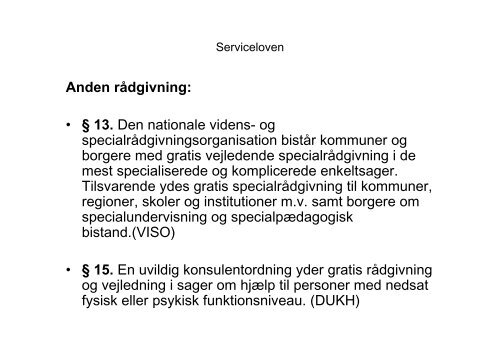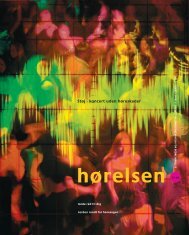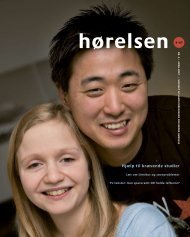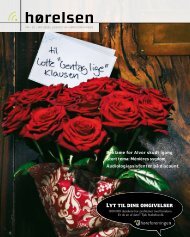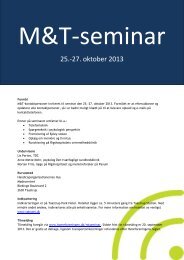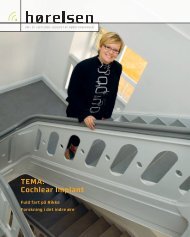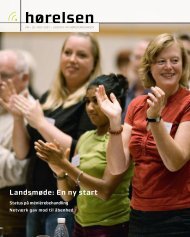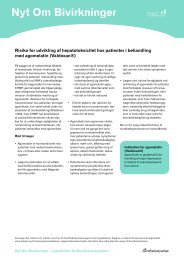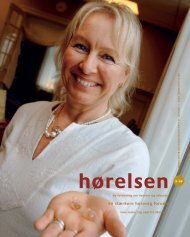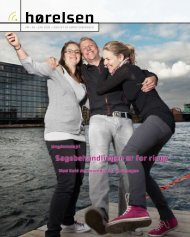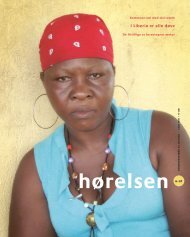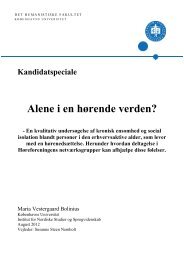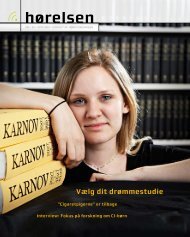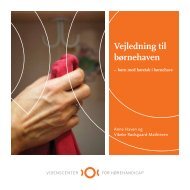Birte Clement: Serviceloven
Birte Clement: Serviceloven
Birte Clement: Serviceloven
- No tags were found...
Create successful ePaper yourself
Turn your PDF publications into a flip-book with our unique Google optimized e-Paper software.
(vi) Whether the existing organization off the railway police, its operation as betweenprovinces and states, and its connection with the district police are in a satisfactorycondition, and, if not, what improvements can be effected; and(vii) Whether the career at present offered to natives in the police in each province issufficiently attractive to induce the proper stamp of men to enter it; and, if not, what stepscan be taken to remedy this evil consistently with the recognized measure of necessity forEuropean controlling the district charge.Local committeesAs a preliminary to the inquiries of the Commission each Local Government andAdministration except Bengal was directed to appoint a committee consisting of aSessions Judge, a District Magistrate and a Superintendent of Police in the largerprovinces, and elsewhere of a District Magistrate and a Superintendent of Police, toproceed to such districts as are most important from the point of view of policeadministration and make a local inquiry into the matters set out in the order of reference.These committees made no formal record of evidence, but each drew up a statement ofthe existing organization of the police, the defects which had been brought to notice andthe remedies that had been suggestedMethod of inquiryThe President and all the members, with the exception of the Honourable the Maharaja ofDarbhanga, who arrived a few days later, and Diwan Bahadur Srinivasa Raghavaivangar,who joined the Commission at Calcutta, had assembled at Simla by the 15th October1902. A decision was at once arrived at regarding the general lines of inquiry and themethod of procedure, which were briefly as follows. For each province a set of questionswas framed after consideration of the report of the local committee and the views of theLocal Government, and including a request for any suggestions not covered by thequestions as framed. Copies of these questions were issued to witnesses designated by theLocal Government and to a few persons whose names were suggested by members of theCommission. At the same time a not ice was published in the English and vernacularnewspapers of the province, giving particulars of the dates and places at which theCommission would hold public sittings and inviting any person who wished to furnishevidence to apply either to the Secretary to the Commission or to the Local Governmentfor a copy of the questions framed for the province and forward his answers to theCommission by a certain date. The object of this invitation was to enable persons notselected as witnesses by the Government to come forward and state their views. Manysuchpersons are valid themselves of this opportunity, and this was especially the case inBengal. All replies were examined by the Commission, who then selected fororal examination those witnesses whom it was desirable to examine in elucidation or theevidence given in their written replies.Tour of the Commission


